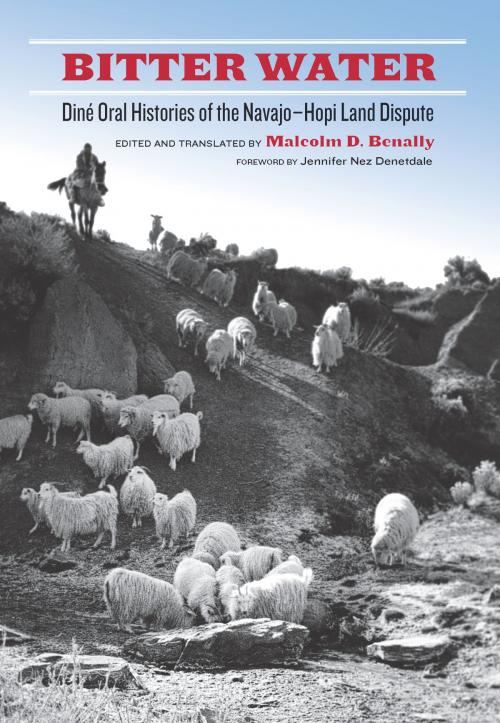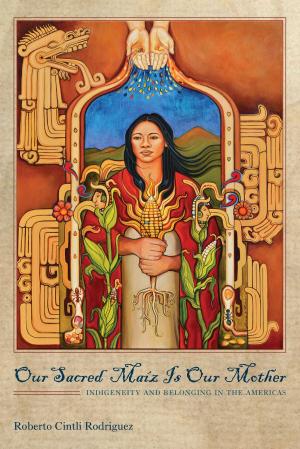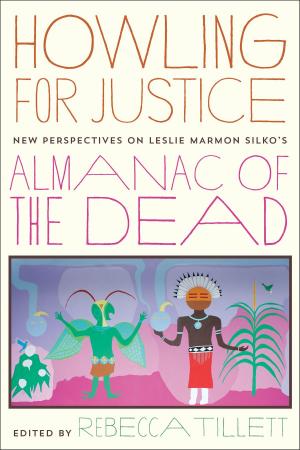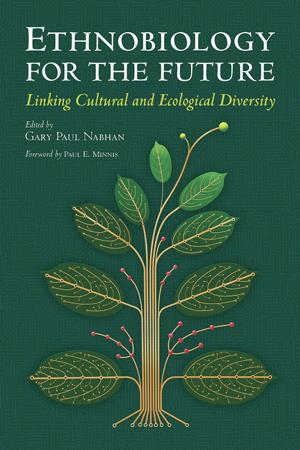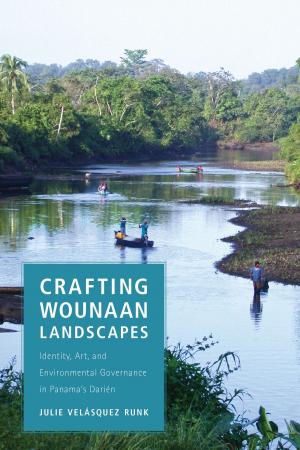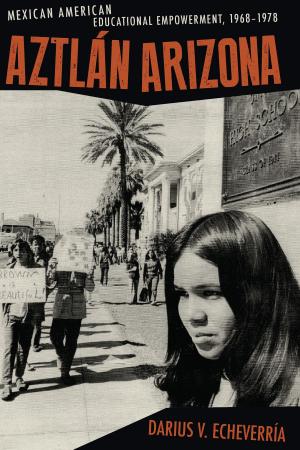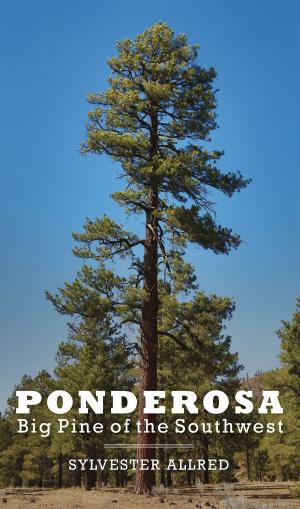Bitter Water
Diné Oral Histories of the Navajo-Hopi Land Dispute
Nonfiction, Social & Cultural Studies, Social Science, Cultural Studies, Native American Studies, History, Americas, Native American| Author: | ISBN: | 9780816506620 | |
| Publisher: | University of Arizona Press | Publication: | May 15, 2011 |
| Imprint: | University of Arizona Press | Language: | English |
| Author: | |
| ISBN: | 9780816506620 |
| Publisher: | University of Arizona Press |
| Publication: | May 15, 2011 |
| Imprint: | University of Arizona Press |
| Language: | English |
Many know that the removal and relocation of Indigenous peoples from traditional lands is a part of the United States’ colonial past, but few know that—in an expansive corner of northeastern Arizona—the saga continues. The 1974 Settlement Act officially divided a reservation established almost a century earlier between the Diné (Navajo) and the Hopi, and legally granted the contested land to the Hopi. To date, the U.S. government has relocated between 12,000 and 14,000 Diné from Hopi Partitioned Lands, and the Diné—both there and elsewhere—continue to live with the legacy of this relocation.
Bitter Water presents the narratives of four Diné women who have resisted removal but who have watched as their communities and lifeways have changed dramatically. The book, based on 25 hours of filmed personal testimony, features the women’s candid discussions of their efforts to carry on a traditional way of life in a contemporary world that includes relocation and partitioned lands; encroaching Western values and culture; and devastating mineral extraction and development in the Black Mesa region of Arizona. Though their accounts are framed by insightful writings by both Benally and Diné historian Jennifer Nez Denetdale, Benally lets the stories of the four women elders speak for themselves.
Scholars, media, and other outsiders have all told their versions of this story, but this is the first book that centers on the stories of women who have lived it—in their own words in Navajo as well as the English translation. The result is a living history of a contested cultural landscape and the unique worldview of women determined to maintain their traditions and lifeways, which are so intimately connected to the land. This book is more than a collection of stories, poetry, and prose. It is a chronicle of resistance as spoken from the hearts of those who have lived it.
Many know that the removal and relocation of Indigenous peoples from traditional lands is a part of the United States’ colonial past, but few know that—in an expansive corner of northeastern Arizona—the saga continues. The 1974 Settlement Act officially divided a reservation established almost a century earlier between the Diné (Navajo) and the Hopi, and legally granted the contested land to the Hopi. To date, the U.S. government has relocated between 12,000 and 14,000 Diné from Hopi Partitioned Lands, and the Diné—both there and elsewhere—continue to live with the legacy of this relocation.
Bitter Water presents the narratives of four Diné women who have resisted removal but who have watched as their communities and lifeways have changed dramatically. The book, based on 25 hours of filmed personal testimony, features the women’s candid discussions of their efforts to carry on a traditional way of life in a contemporary world that includes relocation and partitioned lands; encroaching Western values and culture; and devastating mineral extraction and development in the Black Mesa region of Arizona. Though their accounts are framed by insightful writings by both Benally and Diné historian Jennifer Nez Denetdale, Benally lets the stories of the four women elders speak for themselves.
Scholars, media, and other outsiders have all told their versions of this story, but this is the first book that centers on the stories of women who have lived it—in their own words in Navajo as well as the English translation. The result is a living history of a contested cultural landscape and the unique worldview of women determined to maintain their traditions and lifeways, which are so intimately connected to the land. This book is more than a collection of stories, poetry, and prose. It is a chronicle of resistance as spoken from the hearts of those who have lived it.
